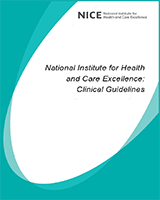From: Evidence review: Barriers to accessing end of life care services

Evidence review: Barriers to accessing end of life care services: End of life care for adults: service delivery: Evidence review C.
NICE Guideline, No. 142.
National Guideline Centre (UK).
London: National Institute for Health and Care Excellence (NICE); 2019 Oct.
Copyright © NICE 2019.
NCBI Bookshelf. A service of the National Library of Medicine, National Institutes of Health.